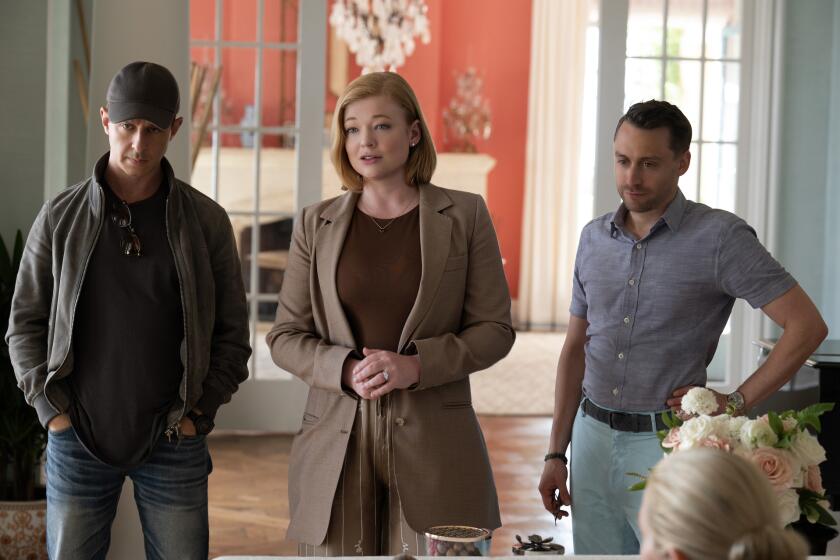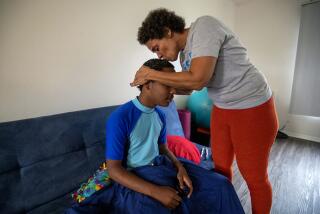‘Succession’: A therapist breaks down the Roy family’s daddy issues
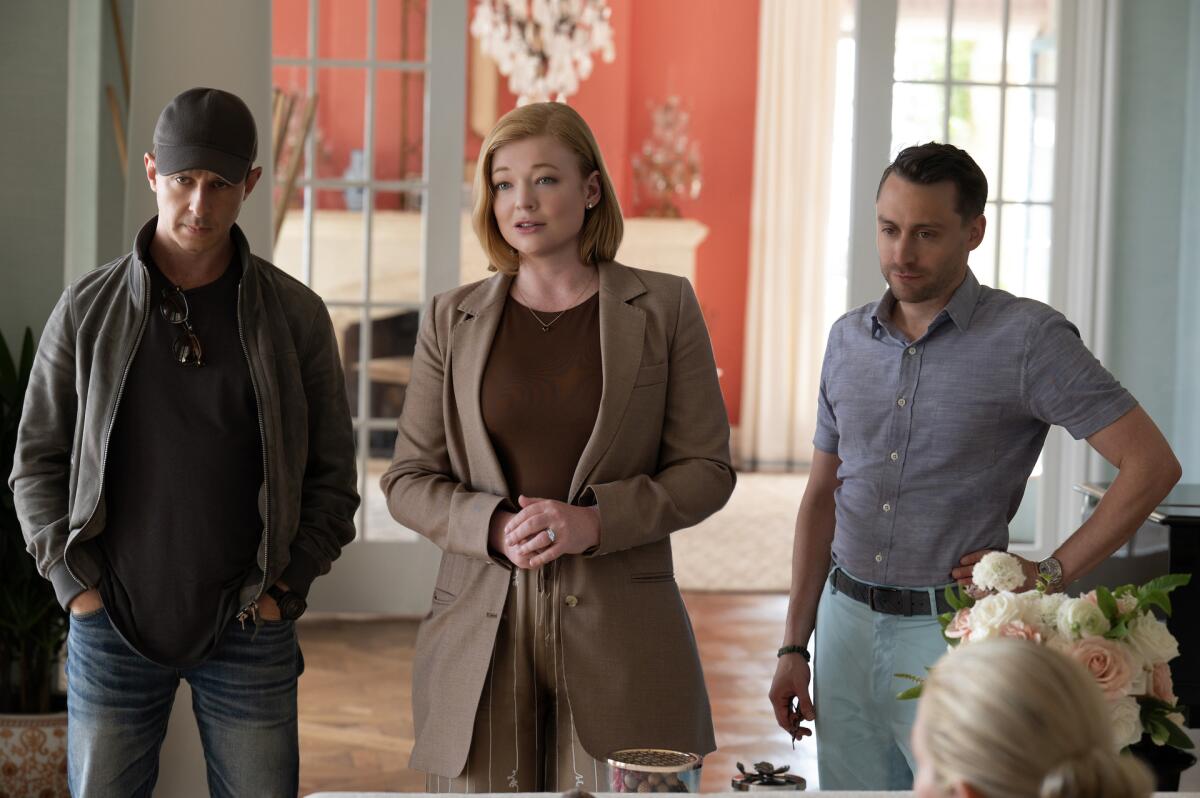
With its fourth season, premiering tonight, HBO’s “Succession,” one of the most layered and nuanced portraits of family dysfunction to air on television, will conclude the saga of the Roys.
Based loosely on Rupert Murdoch’s media empire and Shakespeare’s “King Lear,” “Succession” is a family drama about the uber-rich Roy family and the various schemes and plots its siblings undertake in the hopes of being named successor of Waystar Royco, a media conglomerate founded and shepherded by patriarch Logan Roy (Brian Cox).
(“All the rich white folk are going to argue, and then whoever’s best is going to win a kiss from daddy,” summarized comedy writer Demi Adejuyigbe in a viral “remix” of the show’s theme song.)
“I thought it was interesting how well the show’s writers were able to articulate what it looks like to have family trauma,” said Elizabeth Earnshaw, a licensed marriage and family therapist and author of “I Want This to Work: An Inclusive Guide to Navigating the Most Difficult Relationship Issues We Face in the Modern Age.” “How individual children can all grow up in the same family and respond so incredibly differently.”
“Another really big theme was watching them continually try to placate Dad — who uses financial abuse every step of the way — hoping that one day they’re going to be the favorite,” she added. “That plays out [in the battle to be named successor], but it’s really ‘I want to be loved by this man.’ And no matter what they do, it never works.”
Here, Earnshaw “diagnoses” each member of the Roy family to provide insight into their various daddy issues and differing attachment styles.
Kendall Roy
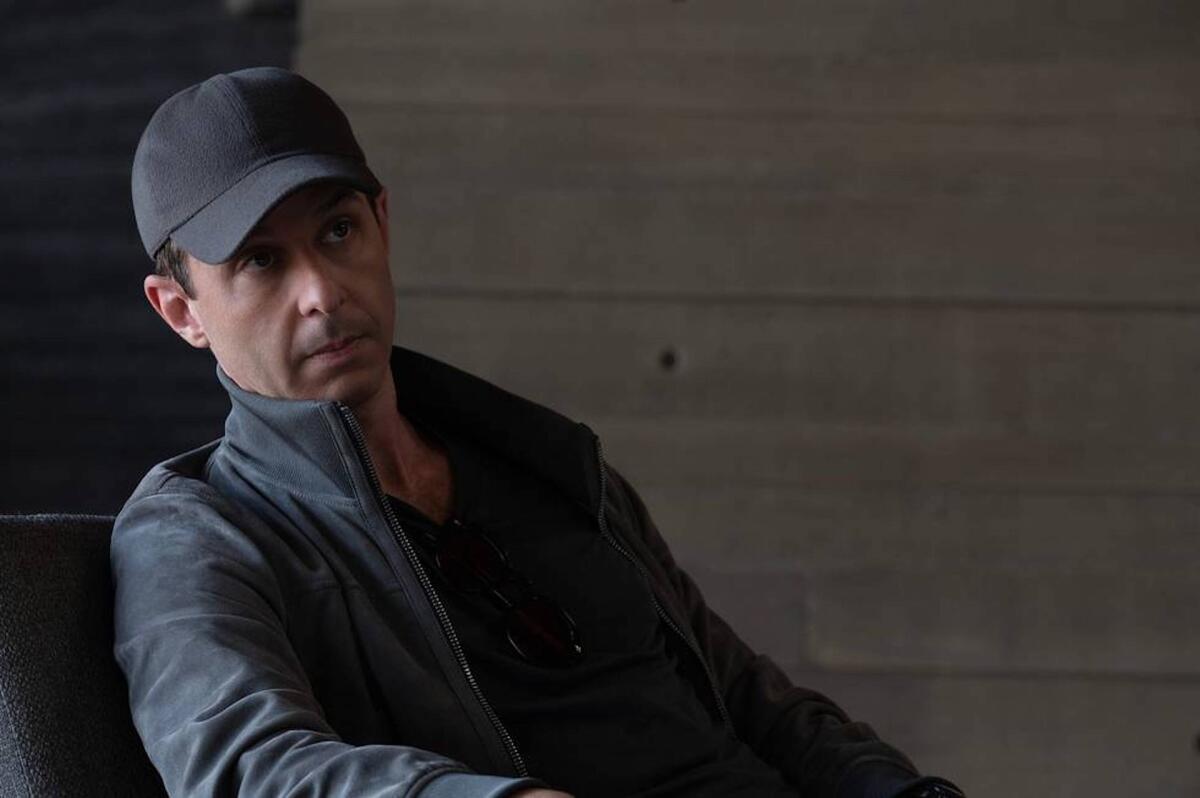
Attachment style: Anxious-preoccupied
Kendall is the eldest son of Caroline Collingwood (Harriet Walter) and Logan, junior only to Connor (Alan Ruck), Logan’s child from an earlier marriage. Over the course of three seasons, Kendall has served as both a lapdog and direct adversary of Logan and displays his emotional woundedness through his struggles with various addictions.
“I think that when Kendall was growing up, the constant back and forth [from Logan] was probably, ‘You’re supposed to be as tough as I am, but you’re not, so I’m going to beat you down,’” said Earnshaw. “Logan constantly dangles carrots [in front of] Kendall. He makes him feel like he should be the man of the house and because of that, he can easily impact Kendall’s ego.”
Because Logan has set this standard of toughness, Earnshaw says, Kendall believes he should be as ruthless as his dad even when it doesn’t come naturally to him. “He’s constantly doing things in his personal life to deal with his own vulnerabilities without actually being vulnerable. He self-harms in many different ways. He completely destroys his relationships even though he’s a sensitive person otherwise. And it’s always to try to be in Dad’s eye. He’s the golden child, in a way, but he’s constantly beaten down by Dad. So his trauma is I’m not good enough and I never know what to expect. I constantly have to fight to show that I’m still the man even though I’m disintegrating inside.”
Kendall also struggles in his romantic relationships, first with his ex-wife Rava and later in his relationship with girlfriend Naomi Pierce. “He’s never had any healthy relationships modeled to him so he doesn’t have a pattern to replicate,” said Earnshaw. “In relationships, there is something called a third, which is any sort of [external] energy force that takes you out of that relationship. People in healthy relationships protect their relationship from whatever’s going on outside.”
But Kendall’s romantic life has always come second to Logan’s validation. (He once dumped someone for saying “awesome” twice in conversation with his father.) “In a healthy relationship, if work is getting super toxic, you’re able to say ‘Hey, my family is suffering so I need to take a step back,’” said Earnshaw. “Kendall can’t do this. He can never protect his family unit from all of these outside forces. He seems to be a little bit more emotionally disturbed and haunted by his own behavior than his father does, but I don’t think he consciously is able to do anything about it.”
Shiv Roy
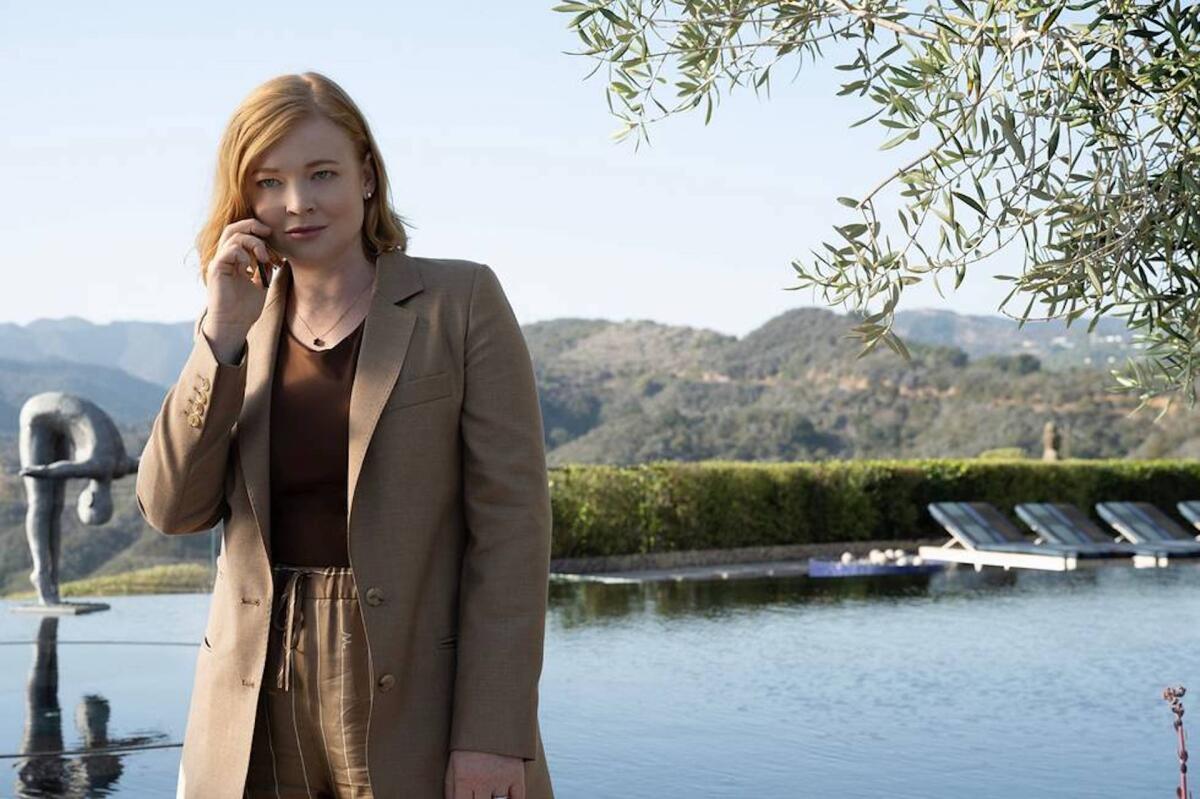
Attachment style: Fearful-avoidant (also known as disorganized)
Tough as nails, Siobhan (Sarah Snook) is the sole daughter of Logan and Caroline. She is married to Tom Wambsgans (Matthew Macfadyen), whose middle-class, pastoral upbringing contributes to the couple’s unequal power dynamic.
“I think Shiv’s relationship with her partner is incredibly toxic,” said Earnshaw. “It’s almost like she doesn’t know how to bond with a person in a way that is authentic, vulnerable and honest. She seems to only recognize what she should do in relationships that are dishonest and manipulative, so she replays these trauma bonds that she has in her family with her partner.
“If you think of fight, flight, freeze or fawn [responses], I see Shiv [mostly utilizing] fawn with her dad,” she added. “She tries to connect with him by making herself the daddy’s girl. It’s interesting because I don’t see her navigating the world with anybody else as a fawn. With her siblings, she can be fairly cutthroat, she can say hurtful things. She fawns them in more manipulative ways to get her needs met.”
Shiv also seems to have inherited her father’s narcissistic tendencies, Earnshaw says. “I think she has some sort of narcissistic injury because she has been so not related to her entire life. She was never really modeled empathy. She cannot mirror people at all, she is not curious about people and she does not notice their feelings. She will show emotion when other people understand her, but she cannot read it or experience it through others.”
The season three episode “Chiantishire,” which takes place at Caroline’s wedding to an unabashed social climber, offers some insight into Shiv’s relationship with her mom. During a private moment at Caroline’s bachelorette party, she tells Shiv she regrets having had children at all. “I think the mother was overall very withholding,” said Earnshaw. “She does not seem to have bonded with her children. It’s interesting because Logan is observably more abusive in his behavior but at least the kids got some bonding, even if it was unhealthy. [Caroline] doesn’t seem to really have her children’s best interests at heart and they don’t seem particularly bonded to her, either. So while they may be trauma bonded to their dad, it feels very lonely when you see their interactions with her.”
“With both of her parents, Shiv is still hurt by them not loving her,” she added. “With the boys, they’re still vying for attention or power, but there’s a part of them that’s like ‘Whatever, our parents are emotionally useless.’ Shiv is still wishing that her parents would change who they are emotionally, and that is something that we see in a lot of adults. I have clients who are 50 years old and they hear hurtful things over and over again [from their parents], but each time they hear it, their face still drops.”
Tom Wambsgans
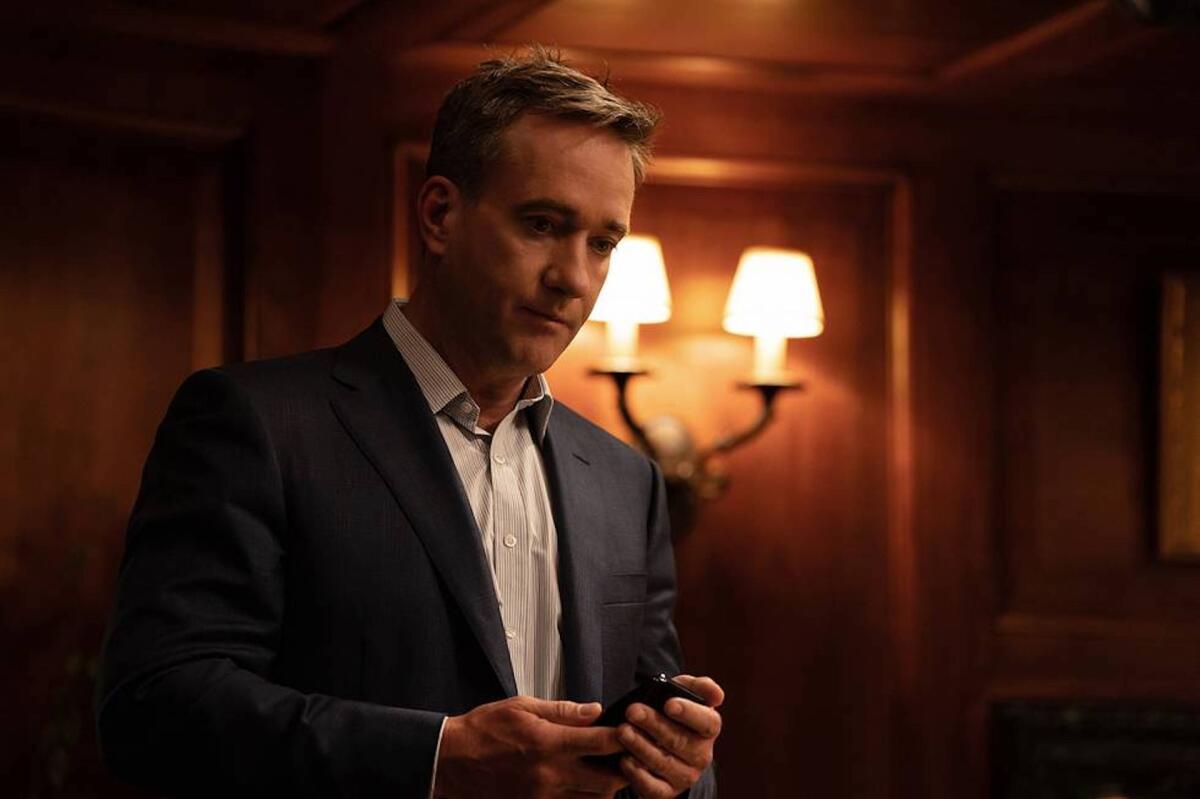
Attachment style: Dismissive-avoidant
Shiv regularly extracts the power and dominance she lacks in her relationship with her father through her marriage to Tom. Even despite major transgressions and betrayals, Tom has (until recently) been under Shiv’s thumb. But a surprising turn of events in the season three finale has led Tom to join forces with Logan instead.
“The siblings have been trying to triangulate Tom this entire time,” said Earnshaw. “Each family member has tried to find a way to make him their ally in the system. But because he was somewhat [of an outsider], Tom recognized that the siblings weren’t going to overcome Logan. He never got inducted into the siblings’ triangulation fully, but he does become a pawn for Logan, which shows Logan’s power to really disintegrate allyships and make people become enemies for his own benefit, which shows what it must have been like to grow up under him. If even a new member of the family is that easily [swayed], you can see why the siblings all do this to each other all the time. The only way to get ahead and survive in this family is to bond with Logan.”
The HBO drama is back for its final season, and a real successor for the Roy family business has yet to materialize. We assess who could take over.
Roman Roy
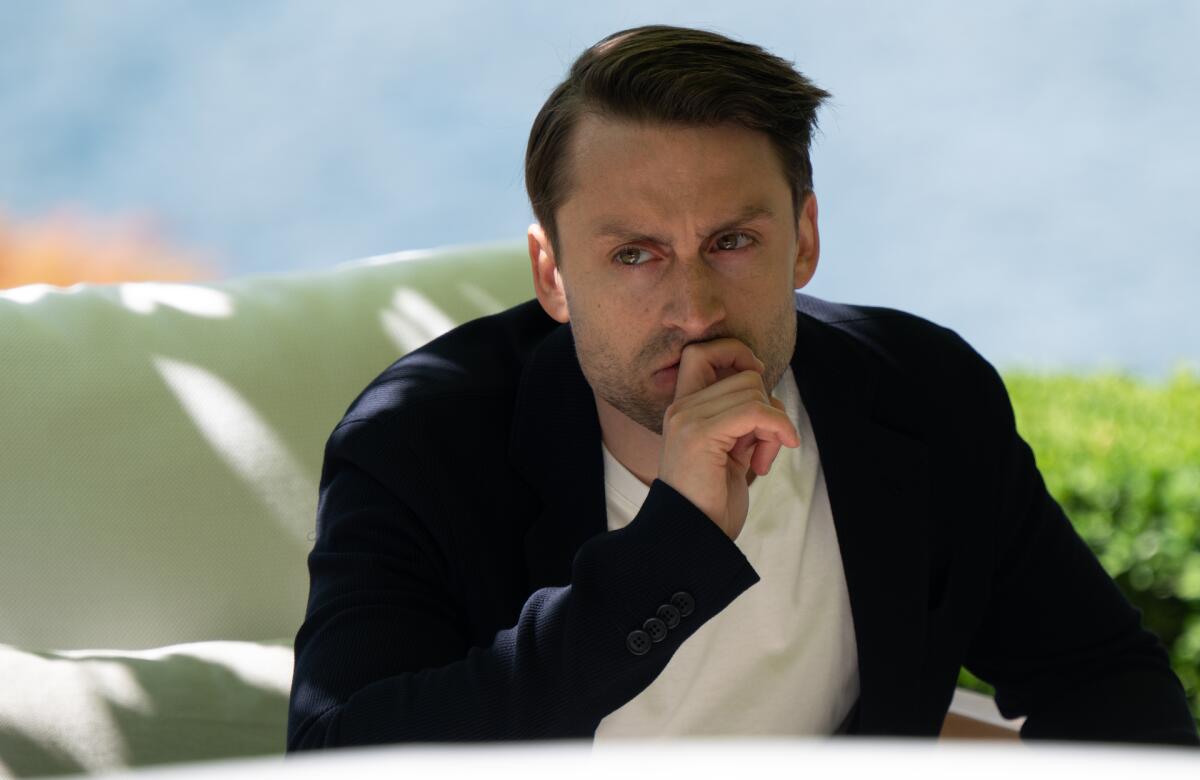
Attachment style: Anxious-preoccupied
Logan’s youngest son, Roman (Kieran Culkin), is the true baby of the family. “Even just in his demeanor, he still plays the role of being the baby even though these are very adult children,” said Earnshaw. “When you look at him, there’s a part of him that still seems very childlike and it plays out in a lot of his choices.”
“He shows a lot of mommy issues throughout the show,” she added. “There’s this deep desire to be cared for by an adult woman who is his mother’s age and there is some sort of confusion around what does it mean to be cared for and is it sexual? Perhaps he’s pushing the line hoping that finally an adult sets a safe limit.”
Roman’s Oedipus complex is most apparent in his relationship with Waystar senior counsel Gerri Kellman (J. Smith-Cameron), on whom he becomes sexually fixated.
“Roman is clearly dealing with some kind of repressed sexual trauma and is then labeled the ‘rebellious’ child, which is something that happens with people who are victims of sexual abuse,” said Earnshaw. “He’s been put into this position of I’m the different one and people don’t take me seriously so that also means that they’re not going to take me seriously if I need help.”
“People replicate behaviors because they’re hoping one day it starts to feel safe and they’re finally cared for,” she added. “And if he was sexually abused by a parental figure, then this inappropriate lack of boundaries might not feel inappropriate to him. It might be something that he feels in a compulsive way to replicate because it’s something he’s maybe experienced before.”
Roman likely grapples with two major questions, Earnshaw says: “What does it mean to be cared for by somebody who’s older? And when you’re cared for by someone, does it mean that it should also be sexual? So for him, there’s a lot of blurred lines with sex and shame and all of these types of things. Connection and care kind of live alongside experiences of shame or pushing limits or boundaries in his psyche.”
On “The Envelope,” the “Succession” star sounds off on the Roy sibling alliance, Roman’s relationship with Gerri, and THAT Jeremy Strong article.
Connor Roy
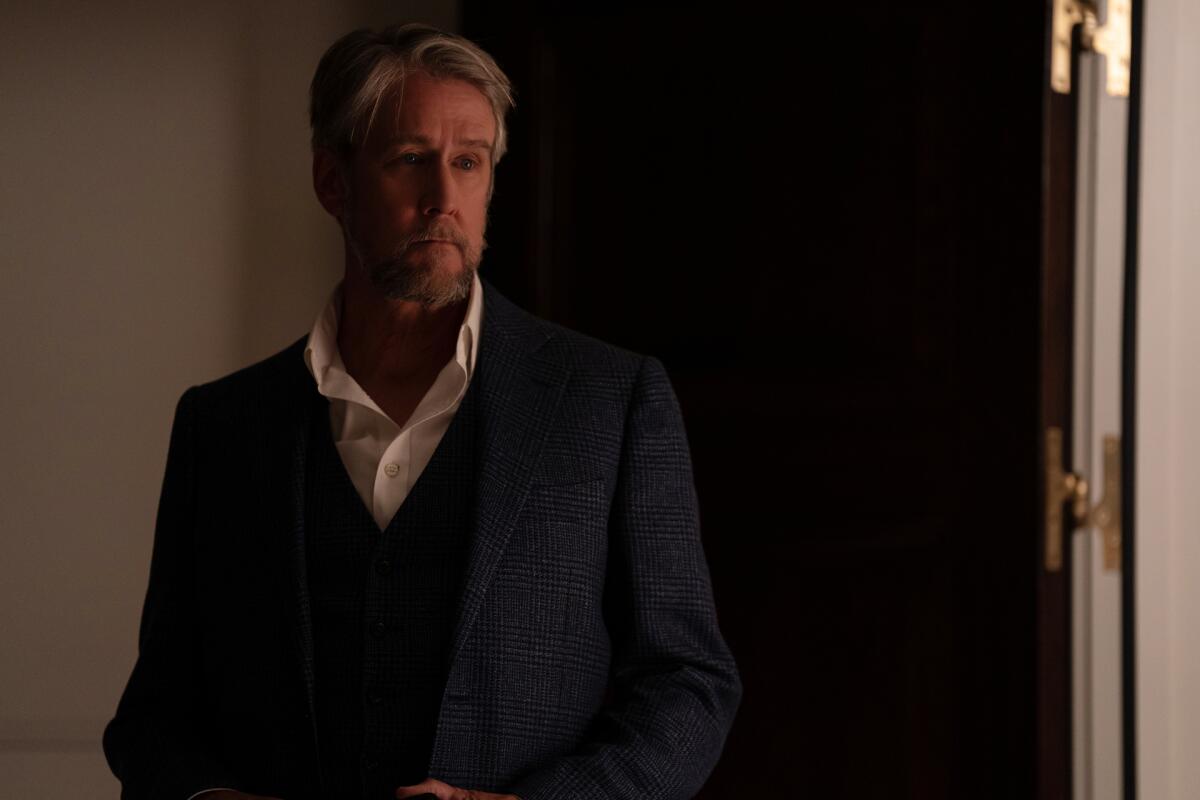
Attachment style: Anxious-preoccupied
Connor is Logan’s eldest son from a different marriage, an unserious eccentric reminiscent of George W. Bush (he even launches a presidential campaign, much to the chagrin of his father). Connor expresses the least interest in competing for the top spot at the firm, opting instead to live a lofty, moneyed lifestyle on his Western ranch.
“In some ways, he’s almost a forgettable character,” said Earnshaw. “Which is what he’s set himself up to be. Connor is more able to differentiate himself, which allows him to look at things differently than people who are stuck in the inertia of it all would.”
Connor’s reluctant fiancée, Willa (Justine Lupe), is a former escort who has been somewhat corralled into the relationship. “She’s probably somewhat avoidant,” said Earnshaw. “It’s like ‘This isn’t an emotional thing, this is a cognitive thing for me.’ Like, ‘We can do this, I guess. By staying on a very logical plane, it can’t really hurt me.’”
“I think in their family, love is just an arrangement,” she said. “They’ve all been so wounded by what it means to be loved. So while there might be some other kind of emotional experience, there’s also this felt experience of This is what I’m used to love being, it’s just an arrangement. It’s just something people agree to do. And so even though in some ways he’s been able to pry himself from the family, he hasn’t really been able to move himself away from how they emotionally relate completely. He’s still replicating some of that, maybe not towards other people, but he’s allowing it towards himself.”
Logan Roy
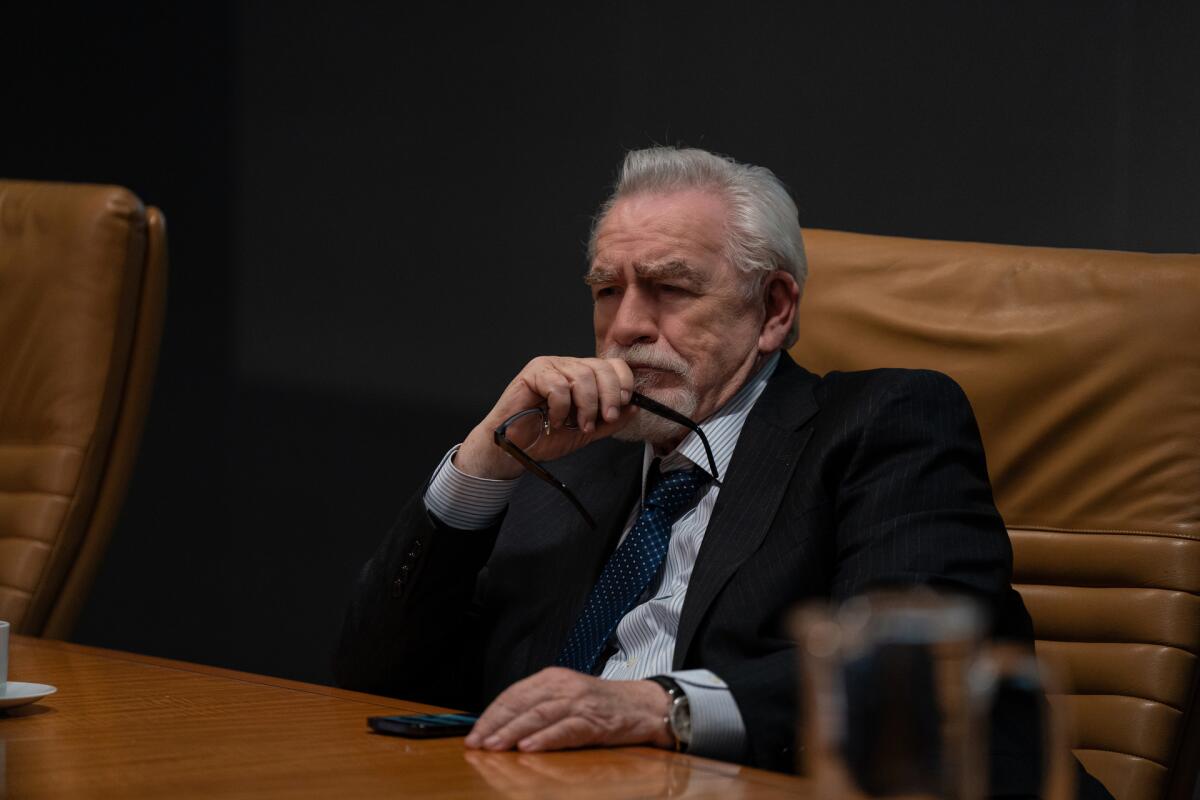
Attachment style: Dismissive-avoidant “but he might even be more than that,” said Earnshaw. “He might have some sort of narcissistic personality disorder.”
“He’s so abusive that he can’t let any of them do anything else with their lives,” said Earnshaw. “I think the saddest thing throughout the entire show is that none of them see themselves as separate from their dad, they only see themselves within the reflection of him: If he thinks they’re great and powerful, they believe it. If he thinks they are losers, they believe it. They might puff up or try to do something underhanded to get him back, but you can see their sense of self is totally reliant on him. And anytime it changes — they have a relationship or a new way of living — he very quickly removes it from them so they go back to being totally reflective upon him.”
She highlights a scene where Shiv, finally fed up of the power and mind games, confronts her father and says she wants out. “He recognizes that if he utilizes her need for him to bond with her in that moment, then she won’t go and he can continue to keep her imprisoned in this emotional and financial abuse. And so in that moment, not only does he defeat her confidence and ability to be an adult differentiated being, but then he starts to triangulate her. Within five minutes, she goes from ‘I have my own sense of self’ to ‘Oh, Daddy’s giving me attention’ to ‘How can I side with Dad to take out my brothers?’ And that exact same sequence happens again and again with different kids. As soon as they [receive validation], every piece of them that was trying to be differentiated dissolves and they immediately become enmeshed with him again.”
More to Read
The complete guide to home viewing
Get Screen Gab for everything about the TV shows and streaming movies everyone’s talking about.
You may occasionally receive promotional content from the Los Angeles Times.
